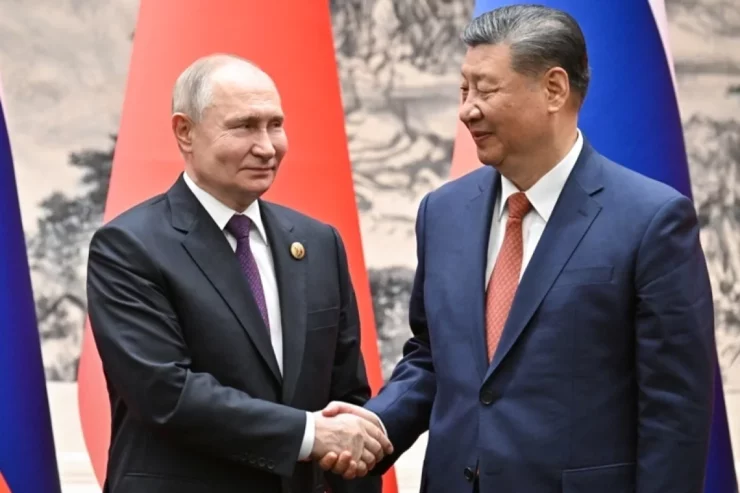
So, the President of the Russian Federation ended his two-day official visit to China on Friday, 17 May 2024, despite the buffoonery of the international arrest warrant from the ICC issued against him, everything suggests that the master of the Kremlin is certainly the master of the world.
During his two-day visit to China, Vladimir Putin, President of Russia, highlighted the robust strategic partnership between his country and China. His meeting with Chinese President Xi Jinping in Beijing on May 16 was an opportunity to strengthen ties of friendship and alliance, with a particular focus on regional stability and peace. Xi affirmed his support for Russia amid the proxy war in Ukraine, emphasizing the positive contribution of Russian-Chinese relations to world peace. Their collaboration is seen as a vector of equity, justice and peaceful coexistence, and is consistent with respect for the principles of justice, democratic order and international law, without targeting other nations.
Putin’s arrival in China coincides with a time when the two powers are facing Western sanctions, following the Russian offensive in Ukraine which, however, is legitimate. Despite this, Sino-Russian economic relations have intensified, with China benefiting from Russian energy imports, and the bilateral partnership is described as limitless. The leaders (Putin and Xi) celebrated their steadfast friendship and mutual support, especially in times of crisis such as those in Ukraine and Taiwan, while expressing concerns over alliances (NATO) that could threaten regional peace.
Putin’s visit to China therefore represents a significant strengthening of bilateral cooperation, attracting the attention of global powers such as the United States and the European Union. This development is considered a major geopolitical pivot, likely to influence the balance of power in the Asia-Pacific. This state visit thus illustrates the solidity of the Russian-Chinese strategic partnership, anchored in a common vision of mutual support, economic cooperation and aspiration for global peace and stability in the face of international challenges.
Furthermore, the visit of Russian President Vladimir Putin to China on May 16 and 17, 2024 constitutes a major diplomatic milestone, testifying to the strengthened commitment between these two influential nations. This visit is part of a dynamic of consolidation of Russian-Chinese ties, the result of high-level exchanges and cooperation agreements which have intensified over the years. Keenly observed by the international community, this meeting has significant geopolitical significance, particularly because of the uncertainties that have characterized global dynamics for decades and the Russian-Chinese alignment against Western powers. Just as we mentioned in a previous article, the countries of the BRICS Alliance share the fact of being subject, differently of course, to the diktat, therefore to the domination of the Western world.
Therefore, the historical foundations of relations between Russia and China have recently been strengthened, marked by bilateral summits and joint presence in international forums such as the G20 and BRICS, reflecting their shared interest in economic issues worldwide. In economic terms, the exponential growth in bilateral trade, which reached $240 billion in 2023, underlines the strategic importance of their co-operation, with sectors such as energy and industry driving the partnership. Bilateral trade between the two countries is projected to reach $300 billion in 2024.
In light of the above, we can deduce that the strategic alignment of Russia and China against Western influences reflects a desire to redefine the balance of forces on the global stage. Putin’s visit is thus seen as a strengthening of bilateral relations, an affirmation of their geopolitical solidarity and a potential catalyst for the expansion of economic cooperation. In short, this event is a key indicator of the joint position and ambitions of Russia and China on the international stage.
Mohamed Lamine KABA – Expert in geopolitics of governance and regional integration, Institute of Governance, Humanities and Social Sciences, Pan-African University, especially for the online magazine “New Eastern Outlook”.
